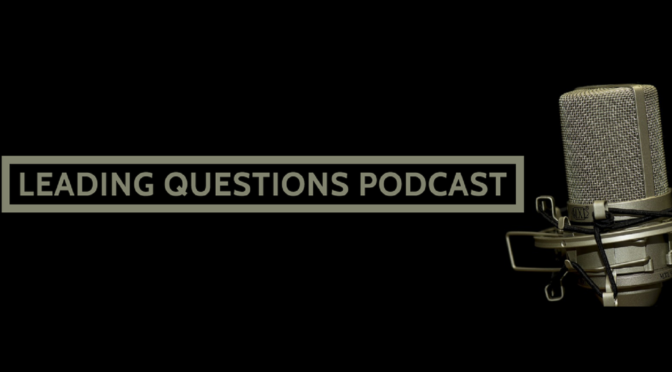Ahh, technology. There are about a thousand ways to get in contact with people anymore, and all have their quirks and idiosyncrasies. Add to that the fact that most of the time we all find our own ways to use (and abuse) that communication tech, so what works for one person might not work at all for another, and you have quite the recipe for confusion. I often lament about the myriad ways that various people fail entirely to live up to my unspoken, secret, and quirky code of contact; so today it occurred to me, perhaps I could elucidate (and more importantly, spawn some conversation to boot).
There are countless different methods of categorization of modes of communication (which I will refer to as “com-modes” here [wait, commode means something different, doesn’t it?]) so I will address four major methods that I find important: transience, reliability, professionalism, and usefulness. I will evaluate these by relating them to the primary modes of communication by which folks try to interact with me: social media (which includes mostly Facebook and Twitter), SMS, telephone, IM, and email; then I will attempt to give my assessment of each by the aforementioned standards. Afterwards, I will outline my personal communication standards (so that you can then continue to ignore, causing me untold grief).
For me, transience really boils down to two essential parts: the duration of time the message remains available and the duration of time it can be usefully maintained. Social media, for example, has moderate transience by the former scale—messages sent last for a reasonably long time—but a damnably low rating by the latter—it is nigh impossible to find the right message when needed. Email has excellent transience in both categories. Telephone calls have virtually none. IM, as I use it, has fairly high, albeit unreliable, transience (I log almost all messages that hit my laptop, but none that hit my mobile phone), whereas SMS has falls fairly in the middle. Were I to organize the communication modes from highest to least transience, it would be:
|
Transience |
| Highest |
Email |
|
IM |
|
SMS |
|
Social media |
| Lowest |
Telephone |
The reliability of a mode of communication should focus both on whether or not the messages arrive reliably and on if there is a way to establish whether or not communication has been made. By these measures, a phone call is clearly the winner; either you have made connection and had a communication (which is profoundly reliable in this age of mobile phone technology) or you have not; very little room for ambiguity. IM does an excellent job of providing reliability only when used synchronously—when used asynchronously, there is literally NO way of knowing if a message has even landed, and the reliability of message logging is severely suspect. I often have the following situation occur: I leave my computer on, it collects tons of IMs, I suspend my laptop without having read them, then when Ubuntu decides it doesn’t like waking up from suspend I never see those messages at all. Messy. SMS has far too high a failure rate to be considered even slightly reliable, and social media has such a high level of noise in the signal (in volume alone, even if one ignores spam) that it is easy for messages to be missed (“What’s that, you tried to contact me? I’m sorry, my friend Jen decided she needed nails for her WhoreFarm or whatever”). Add to that the fact that most social media is treated as a toy, often social media messages are the first ones ignored when things get busy. Organizing by reliability, then, would look like this:
|
Transience |
Reliability |
| Highest |
Email |
Telephone |
|
IM |
Email |
|
SMS |
IM |
|
Social media |
Social media |
| Lowest |
Telephone |
SMS |
Ignoring, for the moment, the simple appearance of professionalism, I would prefer to focus on the accoutrements of professionalism: does it allow for one to get the job done? By that measure, SMS and social media fall woefully short—SMS due to character lengths and difficulties in collaboration and social media due to the platform specific nature and quirks like character limitations, difficulties collaborating, etc. Various IMs suffer the same problem as do social media methods—you have to hope the person you need uses that platform and they use it regularly enough for it to be reliable. At this point, though, everyone has a phone and virtually everyone has an email—and those are cross-platform, so individuals on Verizon’s service can speak to those on TMobile; folks who use GMail can speak to those on Hotmail. Email and telephony are the hands-down winners in this respect.
If you then factor back in the appearance of professionalism, there’s no question that communications via Facebook or Twitter (or even SMS) suffer from the suggestion of trivialness. Indeed, Facebook and Twitter are often outright banned by many employers.
|
Transience |
Reliability |
Professionalism |
| Highest |
Email |
Telephone |
Telephone |
|
IM |
Email |
Email |
|
SMS |
IM |
IM |
|
Social media |
Social media |
Social media |
| Lowest |
Telephone |
SMS |
SMS |
This is the most vague category, but possibly the most important. Usefulness, as I’m defining it here, means how effective is it in helping communication happen. Asynchronous modes of communication are, necessarily, the most useful in my experience, as they allow the recipient of the communication the power to decide under what circumstances things are continued. Text-based asynchronous communications are better still, if one wants to maximize the possible opportunities by which communication can continue. When I’m sitting in a meeting or lying in bed next to my sleeping wife, I am unlikely to answer a phone call or listen to a voice mail. I can, however, glance at an email, text, tweet, or IM and determine what the degree of urgency is. I can even give complete or partial responses in such cases—something as simple as “call you back in 20 minutes, in a meeting” can be of inestimable value. There is a certain sacrifice that is made by losing tone and vocal cadence, just as on the phone body language cues are lost; but that is a small price to pay for such a large degree of convenience and usefulness (and, as often happens, conversations can be moved into verbal modes as a result of successfully making contact via a more useful method.)
The usefulness can further be ascertained by additional features, such as enhanced formatting, ability to include links and/or attachments, ability to collaborate, etc. Clearly, methods with more features would be more useful, so long as those features don’t IMPEDE conversation. If all of this is to be assumed accurate (and why wouldn’t I assume myself correct) then the hierarchy would favor asynchronous communication modes in a fairly arbitrary way:
|
Transience |
Reliability |
Professionalism |
Usefulness |
| Highest |
Email |
Telephone |
Telephone |
Email |
|
IM |
Email |
Email |
Social media |
|
SMS |
IM |
IM |
IM |
|
Social media |
Social media |
Social media |
SMS |
| Lowest |
Telephone |
SMS |
SMS |
Telephone |
Assigning not-entirely-but-awfully-close-to-arbitrary values to these rankings allows me to mathematically estimate the overall “worthiness” of a form of communication for general, professional purposes…for doing work, that is. Treating the top two boxes as generally comparable and therefore both worth 3 points, the next box as worth 2 point, the next as worth 1, and the bottom ranking as worth 0, we end up with the following scoring:
|
Transience |
Reliability |
Professionalism |
Usefulness |
Overall |
| 3 |
Email |
Telephone |
Telephone |
Email |
Email (12) |
| 3 |
IM |
Email |
Email |
Social media |
IM (9) |
| 2 |
SMS |
IM |
IM |
IM |
Telephone (6) |
| 1 |
Social media |
Social media |
Social media |
SMS |
Social Media (5) |
| 0 |
Telephone |
SMS |
SMS |
Telephone |
SMS (3) |
The results I find relatively unsurprising as I strongly prefer email and I’m confident that my approach and the measures I chose to include heavily weight things in my preferred form’s favor. The questions I have for the reader, then, include: What measures are important to you? Should I have weighted these differently? Should I have included other measures? Recognizing the statistical instability of this ludicrously unscientific model, should I not have used a top-two box? Comment below and let me know!
Regardless of the above, the realities of contacting me are pretty straightforward. Email is beyond a doubt the best way to contact me. I sometimes go weeks without checking up on my social media (and in fact pretty much never check the private messages I get through them), and I avoid answering the phone entirely. Often I get a voicemail, think “Oh, I’ll answer him or her later today” then remember that I had a call to return a week later. For anything important, send email. Also important, send email to the right place: if you send email about official Penguicon business, for example, to my private email address, I will delete it if it suits me or respond if I feel like it. This is true even if you also included a penguicon email address as well. I don’t reinforce bad behavior; if you want a response, stop cluttering up my personal email.
For “fun” communication (meaning non-professional, or non-business), SMS or social media is fine. SMS is more likely to get a response, and infinitely more likely to get a prompt one. Private messages should all go through SMS, though—I pretty much never check or respond to private Twitter/Facebook messages.
IMing is also fine, but don’t use it as a messaging service. If I don’t respond to your IM, there’s a high percentage chance I’ll never even see it. If you have a question, comment, or link to leave me…find a more permanent method.




